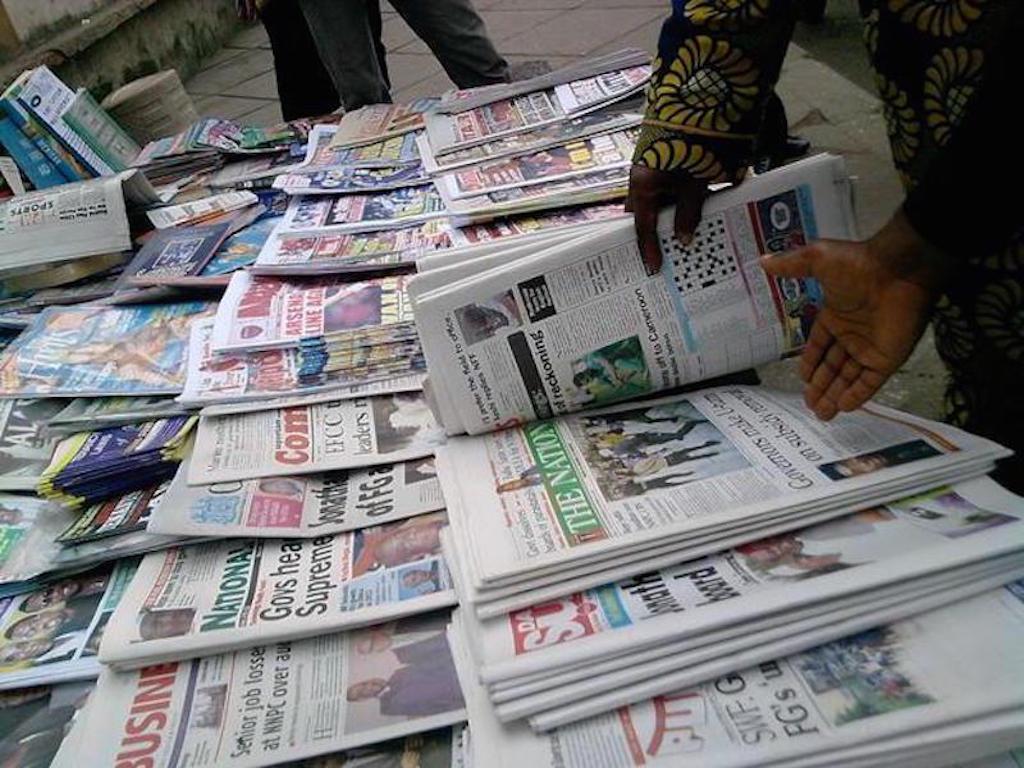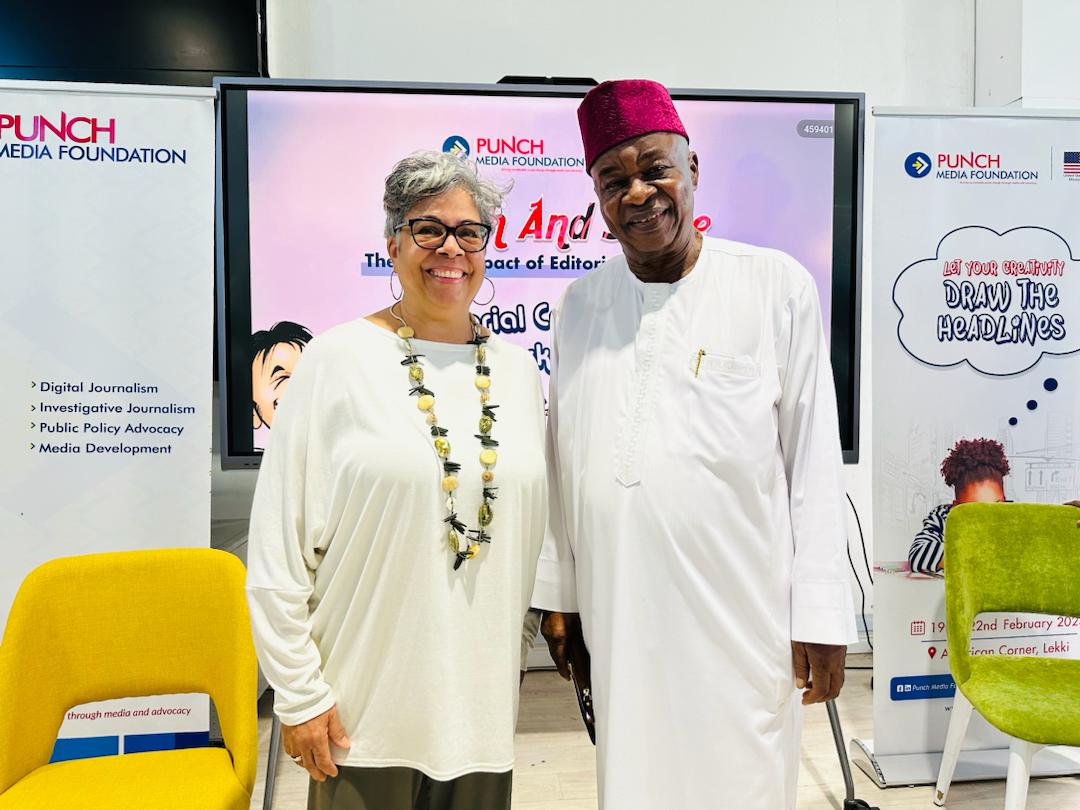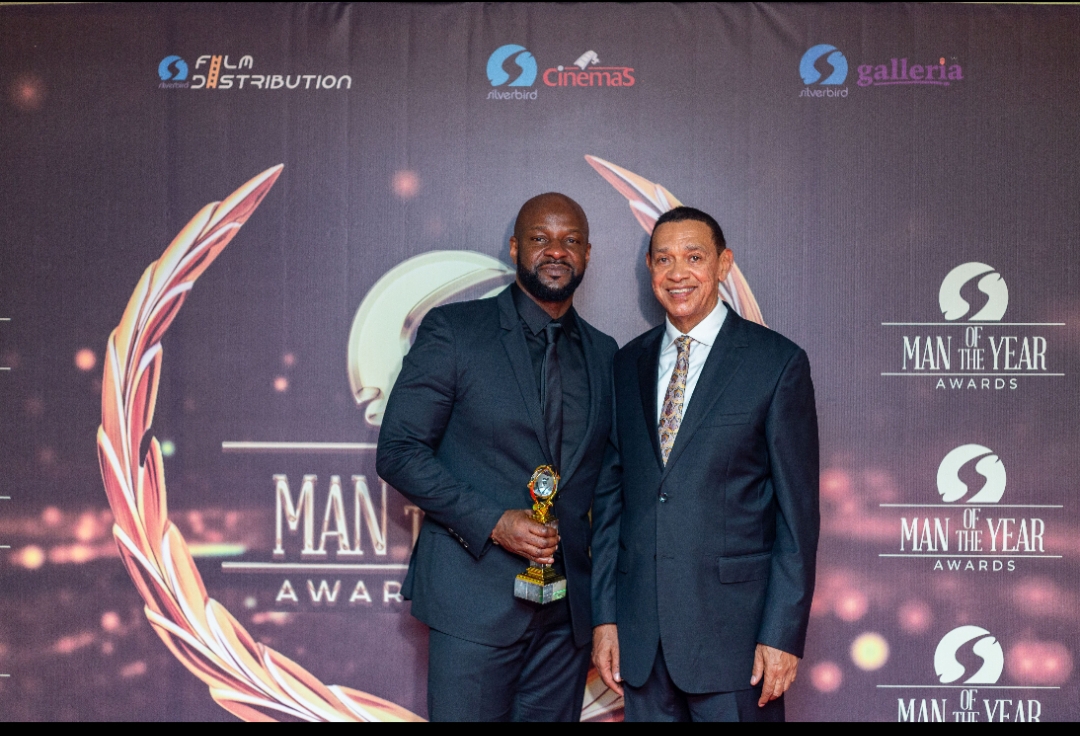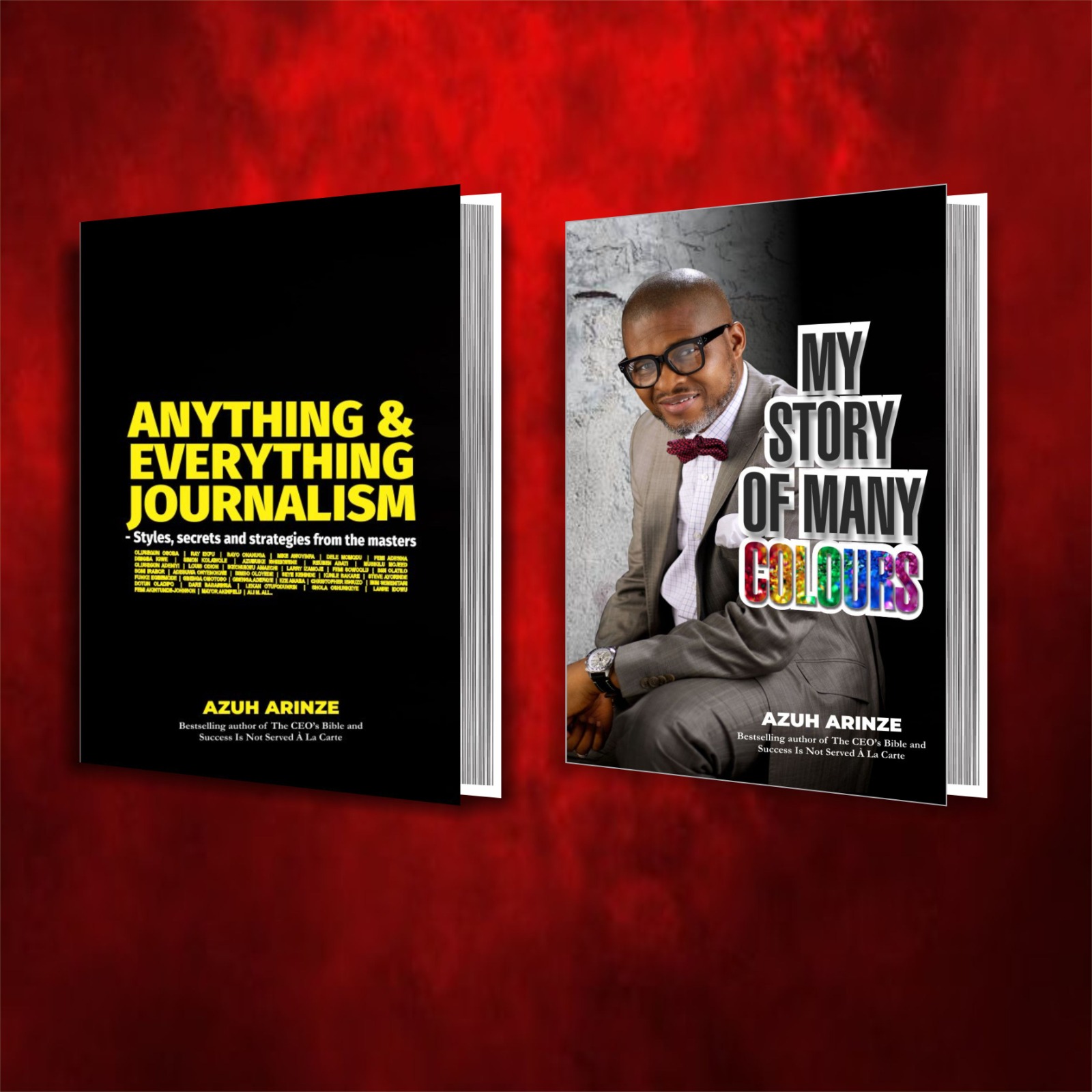Nigerian Media ‘Obsessed With Bad News’

Several policy makers and media managers have accused the Nigerian media of allowing its obsession for bad news and screaming headlines to obstruct the principal mandate of setting the right agenda toward building a united and virile nation.
Some of them, who spoke with the News Agency of Nigeria (NAN) across the nation, expressed disgust at the promotion of bad and sensational news over developmental stories crucial to bringing Nigerians together and maximising their potential.
They specifically decried the prepondrance of fake news that had caused sharp divisions along tribal, religious and geographical lines leading to mutual distrust, suspicion and hatred that had constituted a huge threat to Nigeria’s corporate existence.
While some accused the unregulated social media of being the worst culprits of this situation, others pointed out that the traditional media had not fared any better as they all partake in the primitive struggle to be “first with the news”, a situation that had seen the media sacrificing national interest and patriotism.
Such tendencies, the commentators noted, have always exacerbated insecurity across Nigeria as the media publish stories and pictures that fan the embers of organised hate leading to the escalation of little disagreements in some obscure corners, into major conflicts and crises.
Nura Ibrahim, a senior lecturer, Faculty of Communication, Bayero University Kano (BUK), while decrying the ugly situation, ascribed the spate of fake news to inept attitude of media practitioners to elicit readership.
Ibrahim, head, Department of Information and Media Studies, observed that the crave to break news often lead to misrepresentation and fabrication of facts on the conventional and social media platforms.
“The issue of partisanship is one of the reasons journalists easily spread fake news; they want to appease certain individuals, politicians, groups and ethnic biases.
“Most journalists are being manipulated by the actors that spread the fake news, disinformation and hate speeches.
“Journalists are easy targets of lies and hoaxes by the manipulators of fake news, hate speech and disinformation.
“I think there is also the issue of money inducement from the politicians, the advertisers and from every quarter.
“Negative and fake news always make the headlines because the majority of people always want to hear or read bad news; fake and negative reports are in the form of bad news.
“Editors and reporters often get desperate to attract people to read their newspapers, listen to their radio or watch their television channels. Fake news purveyors know this and will always dangle such baits at them,” he said.
The lecturer also decried the competition between the social and mainstream media, citing it as another factor responsible for easy spread of fake news in the society.
“Studies indicated that majority of the readers don’t read the full news; they only scan through the headlines. Most of the fake news that make the headlines, if you read the content, they are never in tandem with the headline.
“The effect of such fake news, hate speech and disinformation is clear – individuals are denied the right to know the truth and the actual fact, thus, leading to uninformed decisions which translate into bad decisions.
“Ultimately, it affects national integration and harmony, the nascent political democracy, economic stability, cause corruption and promote crises,” Ibrahim lamented.
Abbas Ibrahim, chairperson, Nigerian Union of Journalists (NUJ), Kano State chapter, shares the lecturer’s concerns.
“Journalists should serve as the watch dog of the society, but recent trends have affected this age-long obligation.
“Overzealousness, quest for financial gain, followership, political, ethnic and religious partisanship have blurred the visions of media practitioners, reducing some of them to mere pawns in the hands of evil men.
“We have a duty to ensure that we disseminate accurate and balanced information, devoid of incitement and nepotism,” he said.
Umar Usman, information officer, Federal University, Gusau, opined that the desire to defame people’s character had led to the rise in negative and fake news.
“Negative and fake stories make headlines in today’s society simply because people want to hear negatives over positives.
“People also like to hear scandalous stories instead of developmental ones. Unfortunately, journalists pander to such destructive tendencies instead of the developmental stories.
“The solution to the problem is to enforce all media laws. Journalists need to be educated so as to realise the existence of media laws and their applicabilities.
“Professional unions and associations, especially the NUJ, should emphasise the training and retraining of its members across the country.
“To reduce the circulation of fake news, social media platforms need to be regulated in order to avoid ‘sharing as received’ without making further investigation to determine authenticity of the information.”
But Nasiru Biyabiki, chair, Zamfara Media and Publicity Consult, believes that the ownership and control of media outfits determine their content.
“The media houses have to comply with the directives given to them by their owners and most media owners are serving their personal, political, religious or tribal interests. Government must provide regulatory agencies to ensure proper control of social media practice in the country.”
On his part, Sa’idu Maishanu, chairperson, Zamfara State Radio and Television Services, is concerned that professional journalists freely engage in circulation of fake news.
He lamented that the social media has made everyone a journalist.
“Fake news and hate speeches dominate social media platforms because every citizen has access to a little cellphone with which to spread news and manipulate pictures and videos. We must regulate social media in the country,” he said.
For Hamisu Danjibga, a veteran journalist, negative news sells better and that is why media practitioners hunt for it.
“Some do that out of laziness. They won’t carry out investigation. Others do that in order to be the first with the news.”
Muhammad Shehu, spokesperson of the Police Command in Zamfara, also decried the media’s obsession for fake news and reminded practitioners of the obligation to inform accurately and avoid creating disharmony in the society.
He attributed the spate of negative, fake news and disinformation to political influence, corruption and lack of proper monitoring and supervision of journalists by media managers.
Muhammad Nasir, a former executive member of Zamfara Correspondents Chapel of the NUJ, said the media must remain a source of credible information, to remain relevant.
He expressed fear that that the nation would be plunged into deep crisis if the spread of fake news was not checked.
In his contribution, Gambo Isah, spokesman of the Police Command in Katsina State, noted that fake news had contributed to the current insecurity in the country.
“Fake news in its entirety leads to insecurity, apprehension, fear, uncertainty, crises, among many other effects.
“Government has to do something urgently to stop the spread of wrong information in the social media,” he said.
Some experts have also attributed the decline in professionalism to the lack of adherence to entry requirements as obtained in other professions.
Some of them told NAN that other factors like poor training, poor funding and remuneration, geo-political, tribal and religious sentiments had also affected the quality of news content served to members of the public.
Abdulrasheed Tulu, a lecturer with the Department of Mass Communication, Abubakar Tatari Ali Polytechnic (ATAP), observed that apart from other factors, laziness on the part of most journalists had been their greatest undoing.
He said their reluctance to go extra mile in digging out information had contributed immensely to the propagation of fake news and misinformation in the country.
“The traditional media should serve as a check on fake news, hate speech and disinformation, but unfortunately, they also engage in it.
“In a situation where those that are expected to solve the problem become the ones contributing to it, the drift along the dangerous route will continue,” he said.
He also blamed proprietors of media outfits for not living up to the expectations of providing the appropriate working conditions, thereby breeding an environment that encourages malpractices and desperation.
“The effect of fake news, hate speech and disinformation can be very devastating, especially in a conflict situation, as it aggravates tension, thereby creating panic,” he argued.
On possible solutions, the lecturer advocated ‘reasonable’ regulation of the social media, as well as sensitisation of both practitioners and members of the public.
He also explained that gatekeeping processes should be intensified in media organisations so that editors could regulate and enforce ethics.
Umar Sa’idu, chair, Nigeria Union of Journalists (NUJ), Bauchi State chapter, also stressed the need for appropriate sanctions on defaulters to serve as deterrent to others, just as he pointed out the desirability for training of professionals.
Ishola Michael, North-East Zonal Editor, Nigerian Tribune Newspaper, observed that unnecessary competition between traditional and social media, as well as the commercialisation of media content, had done a great disservice to the profession.
“The social media wants to break the news, not minding what would follow, and the traditional media wants to keep its status of authority, honesty and credibility.
“That situation has brought about competition. So, in order to remain relevant, the traditional media, particularly private-owned, are gradually tilting the way of the social media.
“Again, no matter what a client wants dished out, he or she is obliged, so long as there is willingness to pay for the airtime,” he said.
On his part, Saidu Malala, chairperson of Nigeria Union of Journalists (NUJ), Gombe State Council, urged journalists to always live up to the ethics of their profession.
“Unless journalists imbibed the spirit of placing the interest of the country above other things, development will hardly be attained.
“As journalists, we must take into cognizance our responsibility as watchdogs of the society and always keep to best practices.
“This could only be achieved by dwelling on reports protecting national interest and developmental stories devoid of destructive sentiments,” he said.
Alkasim Bala, a lecturer at the Department of Mass Communication, Federal Polytechnic, Damaturu, said many factors were responsible for the unprofessional conduct of some journalists.
“In Nigeria, many factors influence decisions and actions of media practitioners, some of which include regional, tribal and religious differences that determine way we think and do things.
“Many people try to defend what they see may affect their tribe, religion or where they come from,” Mr Bala said.
He regretted that some people take advantage of being media proprietors to spew hate speeches, while the appropriate authorities hardly bother to check their excesses.
According to him, such media owners only see and assess things from their own points of view and hardly consider overall national interest.
Fati Balla, former Nigeria’s Ambassador to Botswana, however, attributed the challenges being faced as a result of the unwholesome activities of some media outfits to lack of proper supervision by the appropriate authorities.
“Media is a very important instrument in shaping and educating every society, through accurate information. It must be regulated to ensure protection of public interest,” she told NAN in Yola.
(NAN)










